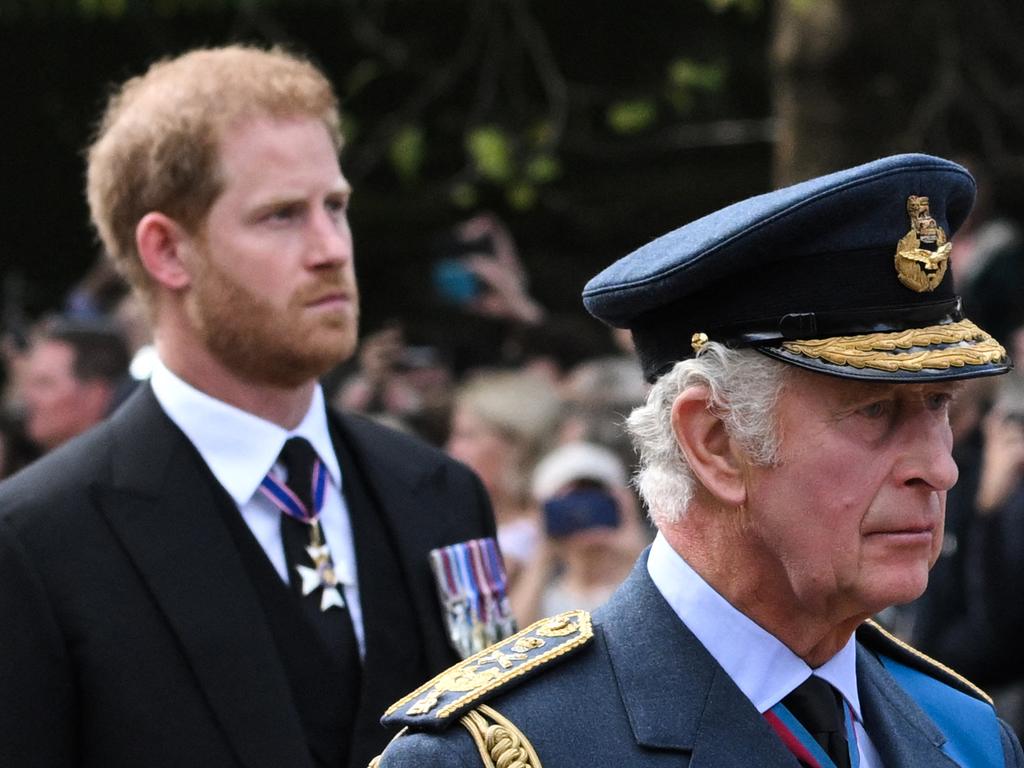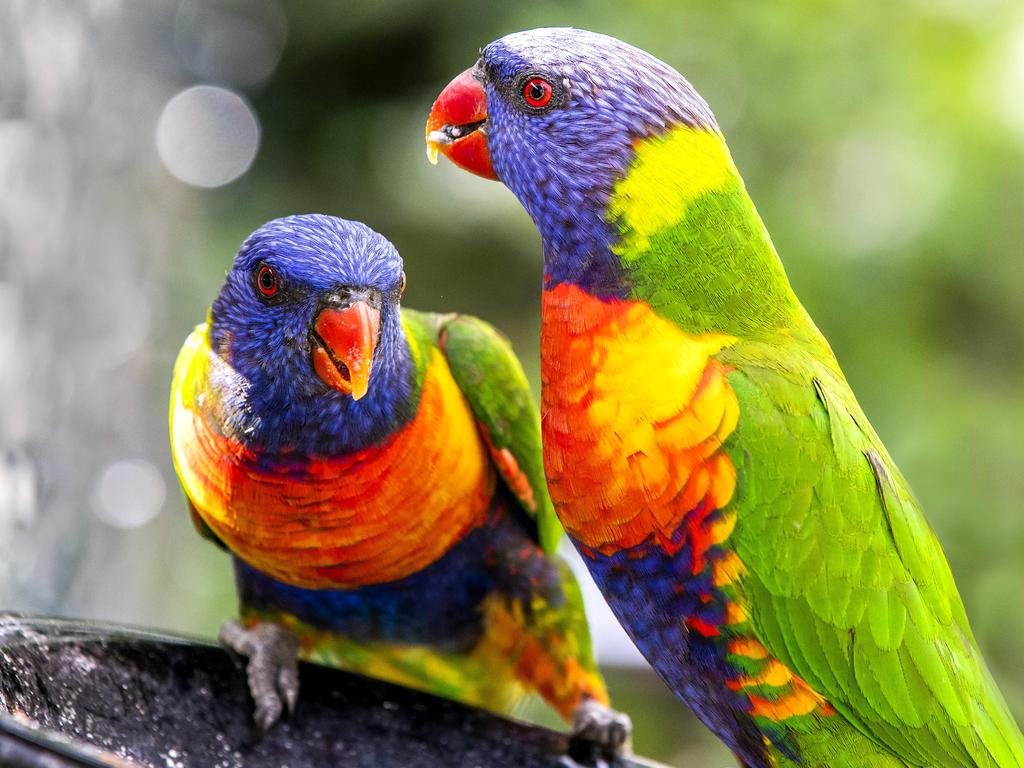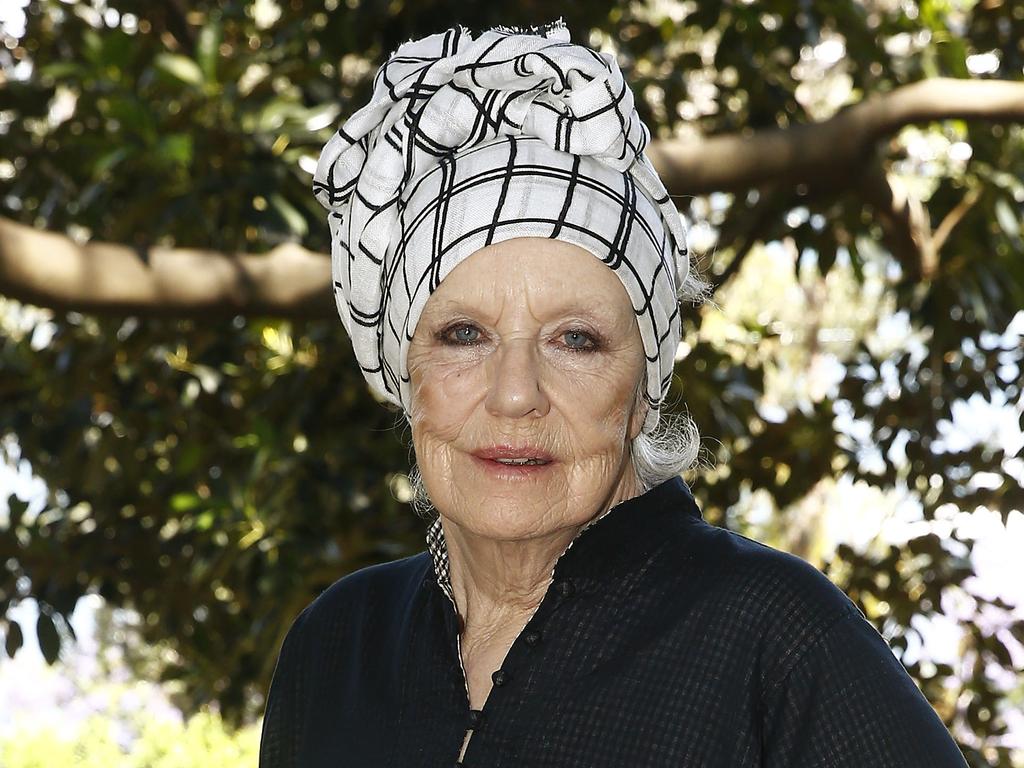‘Can someone in this family please turn gay?’: what it means to be cool in 2023
Give me performers who dare to be silly for the common good. The kitsch, crazy Eurovision is a tonic of joy, and in these fraught times, that’s cool.

“Can someone in this family please turn gay?” demands a young member of Generation Alpha in my home. “We need to spice things up a bit.” I immediately recognise this for what it is: another onslaught against the abyss of “cool” in our household – namely, the heteronormative blandness of our family.
Will nothing about me ever be considered cool in the eyes of these youthful interrogators? Of course, it is not for parents to be considered cool. It never was. And yet, it would seem, this is the only longstanding rule of cool yet unbroken. Everything else about that label has shattered, morphed. What, exactly, does the word even mean to anyone now? Is cool still even cool? What is the new cool? Because the times they are a-changin’ (Dylan – cool or uncool?).
The linguistic anthropologist Robert L. Moore once explained that “cool” is simply the most popular slang term of approval in our language. It began appearing in American English in the 1930s as an expression that meant “intensely good”, while handily distinguishing the speaker by displaying their otherness to boring old mainstream culture. In the 50s and 60s the word exploded in popularity, superseding those casual superlatives “swell”, “groovy”, “awesome” and “sweet”. It was a simplistic brand of American, Happy Days cool. Uncomplicated, very binary. Those guys in the black leather jackets were the cool ones and it felt like it was coded into their rarified DNA. No one else was, or aspired to be – it felt too fenced-off, too far out of reach. Today, cool and uncool co-exist happily. Cool is, in essence, and in all senses, non-binary. Anyone can be cool. (But can Generation X parents?)
The word cool, in its old usage, also had an edge to it, a coldness. Cultural commentator Ilan Dar-Nimrod, from the University of Sydney, has said research over the years has linked a number of behavioural traits to the concept of “coolness”; signifiers such as sexual appetite, risk-taking, masculinity and muted emotion.
But as the rules of cultural cachet fracture in the myriad-siloed world of the internet, the word is fragmenting, and the old gatekeepers of cool are in doubt. As for the label, what is it to Generation Alpha? Will it head the way of “groovy” and “far out” for them – a relic of another age? They say “lit” to mean much the same thing as cool. Or “dope”. Or “fire”. But these words belong to their generation alone. The teen-imposed rule: this language is out-of-bounds for my generation. Using it – not cool.


The teen who was desirous of the not-so-white bread, heteronormative family is less disdainful when asking that I buy tickets for a play starring the coolest dude in the Heartbreak High firmament, Ca$h, played on the TV show by actor Will McDonald. The character – gay (but not “out”) while apparently asexual, incredibly sweet to his nanna, in with the wrong crowd but utterly loveable – essentially put the Heartbreak into Hearthreak High.
I wait with my teen for McDonald to emerge from the dressing room after the performance. He is gracious. Selfies are taken. The teen gushes. This is the coolest kid on the cool block, and they all know it.
The coolest family in my teen’s sphere is the friend who lives with two mothers (mummy and mama) and regularly stays with the gay dad, who is the father; all three parents have known each other for decades and still go clubbing together. In their forties. It’s the most joyously harmonious family unit I’ve witnessed; all three parents are great mates. My Gen Alpha does not merely desire gay siblings. They wouldn’t mind gay parents also. “We need to change things up a bit,” they say. I never know if they’re teasing to get a rise out of me, or deadly serious.
One thing is clear though. In most of the young adult TV they have devoured in recent years – particularly Euphoria – there’s a nuanced, complex and unquestionably positive LGBTQ presence. The world of these young people is fluid; it rejects rigid gender labelling. As one of Euphoria’s characters states simply, “Sexuality is on a spectrum”. Such representations are reflecting and affirming attitudes in real life.
Journalist David Meagher, who has a memoir out in August about growing up gay in a censorious suburban and very Catholic environment, marvels at all of this. He observes that being gay has now become cool among younger generations – and this is a very different scenario to his own youth. “I certainly wasn’t one of the cool kids at school despite being into fashion and New Romantic music and occasionally going to nightclubs on a weeknight,” he explains. “In fact, that was part of the problem. It marked me as different to the other boys who were into football, cricket and rock and roll. They bullied me. Called me lots of names that basically all meant gay, even though I wasn’t out of the closet yet, and made school torturous.
“So when I watch shows like Heartbreak High, Euphoria, Sex Education and Heartstopper, where the gay kids are, for the most part, treated as no big deal, to me it seems like a kind of fantasy depiction of high school. I used to think there would be nothing worse than having to go to high school again; now I think it might actually be good fun.”
I never had “it” either. My husband and I are of the nerdy librarian persuasion, still waiting for our moment in the sunshine of cool. Earlier this year I attended the Elvis Festival in rural Parkes, clad in an original, Hawaiian print kaftan (circa early 70s Priscilla). When it came time to post a picture on social media I hesitated; could I really divulge this embarrassing moment to my entire professional and social network? Some background: I’m an ex Triple J newsreader. Back in the day this conferred upon me a varnish of cool, despite knowing, deep down, that unlike many of my contemporaries and colleagues, I did not satisfy the lofty heights of the label. I donned the vintage clothes, Doc Martens and black tights and took advantage (a lot) of door lists to the best gigs in town. But felt like an imposter. Now, a few decades later, here I was at Parkes among a plethora of Elvises and Priscillas. This would have been a disaster for my 90s-era self, but what does it mean in the era of Austin Butler, who plays the king in the biopic Elvis, and actor Riley Keough, Elvis’s granddaughter?
My husband still couldn’t care less about being cool – he is the proud purveyor of all things uncool in Australia with his #OzKitsch Twitter account; it’s lovingly mired in the uncoolest aspects of our nation. He is an expert, shall we say, on the Daggiest Aspects of All Of Us. And it has 34,000 adoring followers on Twitter.

What is all of this trying to say? Sam Ryder, Britain’s entry in last year’s Eurovision in Italy, let loose soon after that most glorious event, declaring “cool is the enemy… cool is the reason so many people don’t live authentically. And it’s the reason a lot of dreams end up on the scrapheap, dreams that could have easily been fulfilled otherwise. Cool is something that’s imposed on people by someone else whose journey it isn’t.” And now Eurovision season is upon us – the final is next weekend in the UK. Prog rockers Voyager are flying the flag for Australia, and have been earnestly trying to get accepted into the competition for many years. Drummer Ashley Doodkorte, a graphic designer by trade, says: “This is the culmination of a very long campaign and a huge amount of work for the band... we’ve all been grinding away, honing our craft, playing shows, drumming up support and making this dream I’ve had, since I was a child, a reality.”
Lead singer Danny Estrin travelled to Eurovision as a diehard fan several years ago. “Watching it religiously and having Eurovision parties since university days, I can only say it’s THE GREATEST SHOW ON EARTH,” he says. “It’s a celebration of craziness, extravagance, staging, flights, good songs, and international fun. You simply cannot beat it.”
-
The gatekeepers of old built a very big fence around the pantheon of cool.
-
Since Eurovision launched in the post-war boom years of the mid-50s, politics have often simmered below the surface but on the whole this exhilarating cultural mashup contrasts sharply with the blood-soaked nature of a fractious continent. The final of the contest has screened in Australia since the 1980s – a surprising ratings winner for SBS (it was watched last year by 2.7 million of us) – and is a global showcase for local singers and songwriters as well as a celebration of camp and silliness.
The UK-based Eurovision pundit Dr Paul Jordan shares my love for the supreme kitsch that is the annual Eurovision party in front of the telly – a feature of my years living in London. He says: “We need Eurovision – it’s escapism – and I think we are lucky to have it.”
Yes, we are lucky to have that annual fever dream of sequins, feathers, dubious hairstyles, wind machines, gorilla suits, yellow fox masks and baking grannies – people who dare to be silly, for the common good. To me it’s a tonic of joy, and in these fraught times, that’s cool.
Cool, in the 20th-century sense of the word, often meant judgment, conformity, the sneering collective; the cruelty of exclusion, the bully who wouldn’t let others in. But today it is a celebration of quirky, brave, individual uniqueness and honest vulnerability. Cool, traditionally, dissolved individuality with its ruthless, knowing condesencion. It was the moody man. The crusher of souls. The enemy of those authentically and bravely trying to exist. Superior. Smug. Paul McCartney sang in the Beatles’ Hey Jude, “It’s a fool who plays it cool, by making his world a little colder.” McCartney – cool or uncool today? He’s been around long enough, I suspect, to not care one jot.

Taylor Swift, currently on a world tour, is a fascinating symbol of the new cool - and the structural change happening around it. She is the songwriting superstar who almost never was. The old gatekeepers of cool tried to keep her down. But she has slain them all. Swift began in country music (not cool?) and arguably first shot to mainstream attention when rapper Kanye West ambushed the stage during her acceptance speech at the MTV VMAs in 2009. He got away with that one, his mantle of cool undimmed, for years. But where is West on the cool compass now? Swift, on the other hand, goes from strength to strength. She’s now worth half a billion dollars. Songs from her most recent album, Midnights, claimed every top ten slot in America’s Billboard Hot 100 chart straight after its release.
But it was almost very different.
The gatekeepers of old built a very big fence around the pantheon of cool, excluding so many enormously talented, constantly surprising and outspoken women such as Swift. When she fought her former record label, Big Machine Records, its founder Scott Borchetta and new owner Scooter Braun over the ownership of the master recordings of her first six studio albums, she called out loudly and fearlessly not only the business forces that disadvantage artists financially, but the sneery, dismissive institutions that decided who would succeed at all.
When she artfully worked social media, growing her army of fans over the past decade to create an internet empire, she eclipsed the power of the male-dominated music press.
The kids on their screens in their rooms had taken over, anointing new stars from TikTok and not even bothering with traditional pathways to star-building anymore. And of course Swift underscored the queer zeitgeist perfectly when she cast trans model and activist Laith Ashley in her recent video, Lavender Haze. Swift has cultivated her fandom’s devotion in quaint but highly effective ways. Her persona is warm. Generous. Open hearted. She has listening parties in her home for fans. Bakes cakes for them. Pays off medical bills and tuition fees. Sends out homemade gifts and exclusive merch. Retweets, shamelessly, gushy posts of fan love. Hugs fans, chats to them and smiles. Enthusiasm is the antithesis of cool, yet enthusiasm is also now cool. Because that is the authentic self laid bare.
-
Cool, now, is constantly being redefined.
-
Cool, to the extent it matters, is authenticity, or the appearance of it at least. Baring your soul in all its mess. Being brave. It was there in the last episode of Heartbreak High (spoiler alert) when the fictional Ca$h acknowledges his love for non-binary Darren openly and extravagantly. There was nothing cool about his public declaration, and in that, it was the very cool that Gen Z – with its zeal for inclusivity – embraces. Real cool is not caring what other people think of you. Maybe it always has been.
Lauren Rosewarne, a pop culture expert from the University of Melbourne, isn’t sure the word actually has much relevance anymore. “While it’s still widely used to denote something positive,” she explains, “it’s not as though it holds much more weight or meaning than personal opinion or preference… When I was at school in the late 1990s there were brands that were near-universally considered cool, and ones that distinctly weren’t, and the story wasn’t hugely more complicated than that. That’s absolutely not the case anymore.”
“This is, largely, an internet phenomenon,” she continues, “where so many subcultures have become normalised and legitimised. Cool has very different meanings for each group. What’s cool, for example, among North Shore Sydney mothers of toddlers is a cool that might be shared by her social group and followers on Instagram; but it’s going to be a cool that’s completely meaningless to a 19-year-old non-binary gamer living in Perth. And every single social and cultural permutation between.”


So cool, now, is constantly shapeshifting, being redefined and fracturing. Note the speed of changing trends on TikTok and Instagram and gaming, and multiple streaming platforms with their constant supply of fresh content. We’re no longer relying on monthly magazines to come out and dictate to us what is and isn’t cool. It’s all happening in real time now, and everyone has a say.
Cool today is gloriously impossible to define. I asked a random sampling of different people and was hit by an onslaught of subjectivity. Crochet. Small Japanese whisky bars. Retro gaming consoles. Manners. Female film directors. Seoul. Singer Sampa the Great. Thrift. Lewis Hamilton. Vinyl. Priya Ahluwalia’s fashion label. Perineum sunning (proceed with caution.) Gerwyn Davies. Banksy. Bella Ramsey. SZA. Kindness. MONA. Kitty Flanagan. Burna Boy. Deborah Harry. Larry David. Rachel Perkins. Dion Lee’s warehouse sales. Miles Davis. Greta Gerwig. Michelle Yeoh. Glitter tanning oil. Sally Rooney. Berlin. Jan Fran. Brando. The original Land Rover Defender. The Jaguar E-type. Elena Ferrante. Greta Thunberg’s tweet to Andrew Tate about toxic masculinity. Trevor Noah. Tara June Winch. Sufjan Stevens. Sicily. (Volodymyr Zelensky, the Porsche 911 and Harry Styles appeared in several crossover lists).

My tribe descended last summer to laugh once again at the deep uncoolness of their parents, watching their 1970s Sonny and Cher Christmas specials and wearing, most joyously, sequin Santa hats on the beach.
Who gets to decide what’s cool is butting up hard against a youthful spirit of restlessness, a generational pushback against the institutions and gatekeepers of old calling all the shots. There’s always been something authoritarian about the notion of cool. And now there’s no longer a cohesion to the word, no longer a uniform cultural code. Its power is waning. The influence of the old gatekeepers of cool has dissipated. In fact, they now feel uncool for being so prescriptive, for so long.
“I’ve never been cool and I don’t really care about being cool. It’s just an awful lot of time and hair gel wasted,” Coldplay frontman Chris Martin once declared, most refreshingly. And that’s the thing about cool. Being it, maintaining it, desperately holding on to it seems to take up so much energy.

As a parent I’ve quietly wished over the years that the kids won’t necessarily be in the cool gang at school, or aspire to it, because the rules of cool seem so confining, judgmental, rigid. Cool is tricky. It feeds on exclusion. It sneers at difference. It doesn’t have the courage for difference and, crikey, it feels so damned humourless. Being uncool allows you to be who you really want to be.
So of course I took a deep breath and posted that image of my Elvis Festival visit on Instagram. Because being proudly uncool – your authentic self – takes courage. I also let slip to my cheeky little Gen Alpha a line from Gen X pin-up Rufus Wainwright, who declared “being uncool is being pretty much the coolest you can be.” They appeared unconvinced by the sentiment, but I could tell the cogs were turning.






To join the conversation, please log in. Don't have an account? Register
Join the conversation, you are commenting as Logout